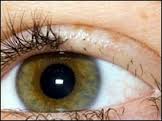Every day I call my mom and we talk about how our lives are going. Today, I angered my mother when I told her I DESPERATELY needed her help with an idea to write about for my last and final science blog. “Courtney, I don’t know! I’m not good at science!” “But mom, you don’t understand, this is a different kind of science! Like, fun science! (@Andrew)” “Ugh! That doesn’t even make sense, honey! Really. You make me want to pull my hair out!” Ding ding. A light immediately went off my in my head. “Hair pulling,” I thought. “Is that really a thing?”
Yes. Hair pulling is actually a real issue. After research, I’ve found that there actually is a disease that is characterized by an individual pulling out their own hair follicles. Trichotillomania, as it is named, is related to OCD (obsessive compulsive disorder) and ” is a disorder that causes people to pull out the hair from their scalp, eyelashes, eyebrows, pubic area, underarms, beard, chest, legs or other parts of the body, resulting in noticeable bald patches,” states trich.org. Evolving mostly from stress, this disease seems like it is only detrimental to one’s physical appearance. However, I questioned, is it harmful to the body? The answer? 100%. “When hair is pulled from the same place, it not only damages the hair follicle (causing stunted or abnormal regrowth) but also the skin. Damage in the form of irritation, inflammation, and even infection to the skin are common symptoms of trichotillomania to watch out for,” according to TrichStop. Repeated and long term pulling can also lead to permanent hair loss in that certain area. The causes of hair pulling and hair pulling itself can often be interchangeable. As explained by TrichStop, individuals who pull their hair may do so because of anxiety or stress. However, some may develop anxiety after pulling their hair out because of the constant worry that someone may notice their re-occuring bald spot. Trichotillomania has also been sited to cause depression.
Though only 1% of Americans will experience this illness, it is prominent in young adults who are about to face the many stresses of hormone increase and body changes. “A 2007 article in the American Journal of psychiatry reports that females tend to outnumber males by 3 to 1 among adults, with the Diagnostic and Statistical Manual (DSM-5) citing an overall female predominance of 10-1.” TrichStop again reports that 60% of people who suffer from trichotillomania also suffered from “another current psychiatric disorder.”
This disorder, sometimes, does not stop at pulling. Trichophagia occurs when patients pull their hair out and then eat it. This portion of the illness is said to stem from a chemical imbalance in the brain. With trichophagia, hairballs in the digestive tract often occur due to the human bodies’ inability to digest hair follicles. Trichobezoars, as they are referred to, can clog the intestines and become deadly if not removed. Healthyplace.com reported that 5-20% of trichotillomania patients suffer from trichophagia.
So, yes, to be so stressed to pull one’s hair out is a real thing and it has also proved to be VERY unsafe.
sources: Livelinks
WebMD
TrichStop
Trich.org


I like how you diverged from my connection and found a different connection that I did not see before! Technology, as it does with most things in the world, has a great influence on patients. Those with bald spots may feel inferior and be scared to take on social media habits such as posting pictures. I have found that people with this disorder are very supportive of one another, as seen in comment boards on Youtube videos which you can find through searching Trichotillomania. Like you said, a cure has not been found, but support is a great place to start!
I am actually up watching videos on this disorder now! It is so interesting and awesome to see how patients are so supportive of one another! As stated in my blog, Trichotillomania is triggered by OCD, anxiety, stress or depression. Hair on the body is something that can be easily picked, much like skin. Thank you for the feed back!
I find your blog quite interesting. The word “trichotillomania” is totally new to me for I had no idea what that was until I read your blog. Just like what you mentions in the blog, only a very small part of people has this disease which leads to extra pressure to them. In this world which technology is so developed, I feel sorry for those who suffering from trichotillomania for there is no cure currently.
I thought this was a good idea for a final blog. I hear about it before from a psych class I took as well as from the news and online sources and things. It truly is a terrible issue. I would be curious to know if there is a specific reason why this is brought on. Do you think it could be any traumatic event? Then again, why hair pulling? What is the mechanism behind why people go for the hair on their body over any other Obsessive-Compulsive issue they could get? I actually hope to look into this more. Good blog.
Also, here is a video you may find interesting. I watched it before when it went viral, really inspirational.